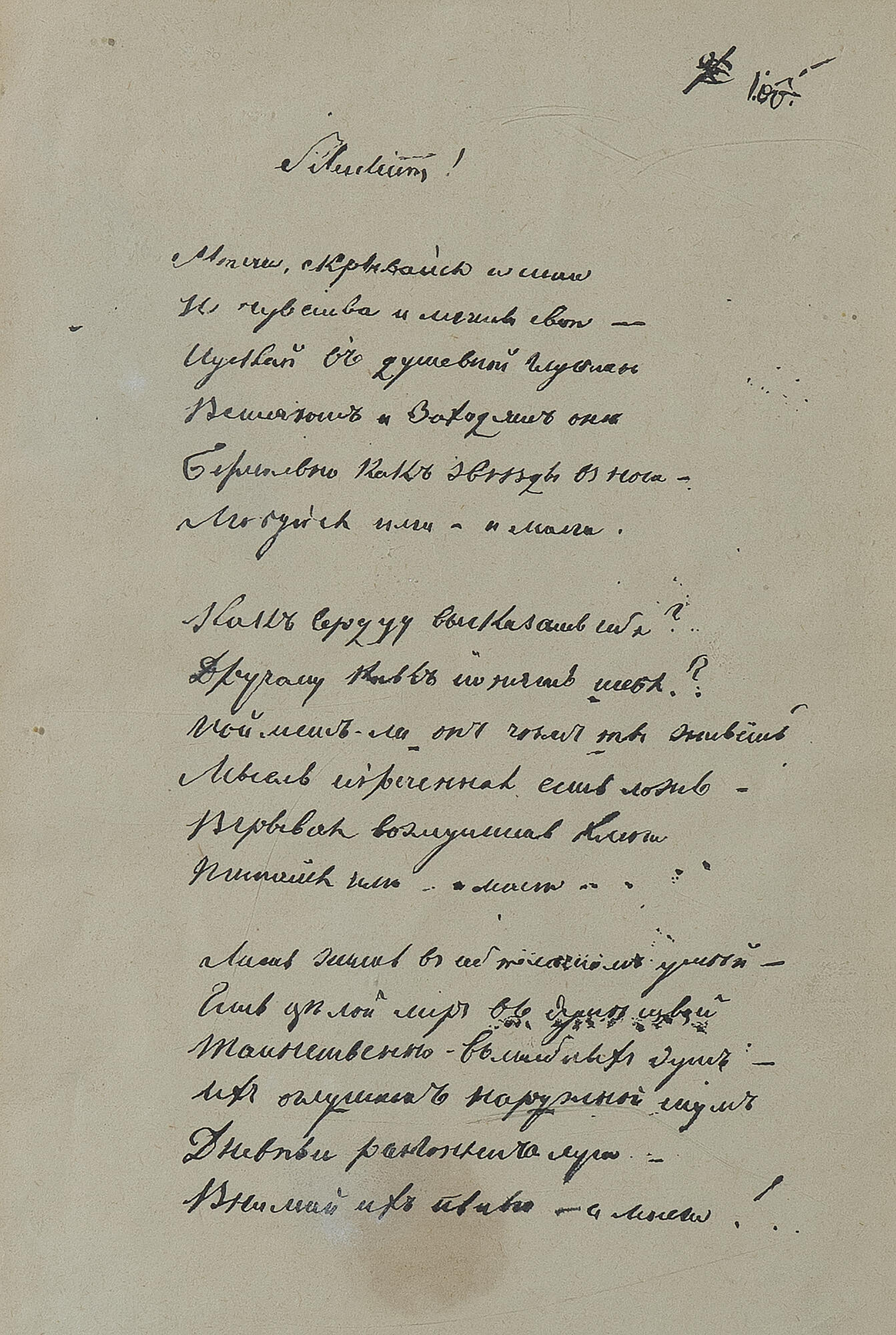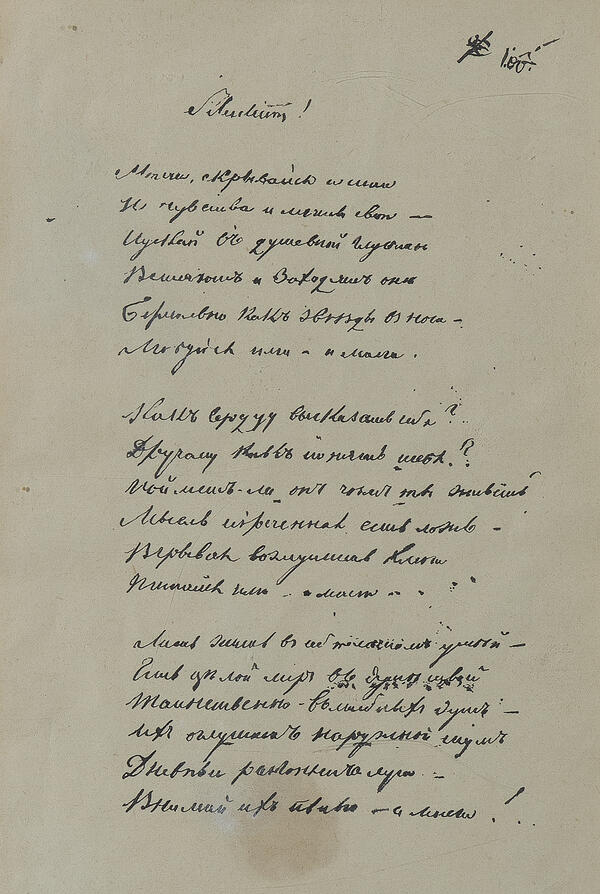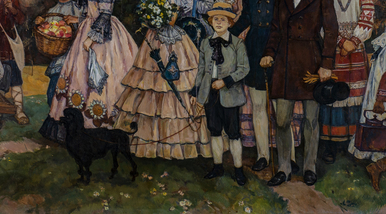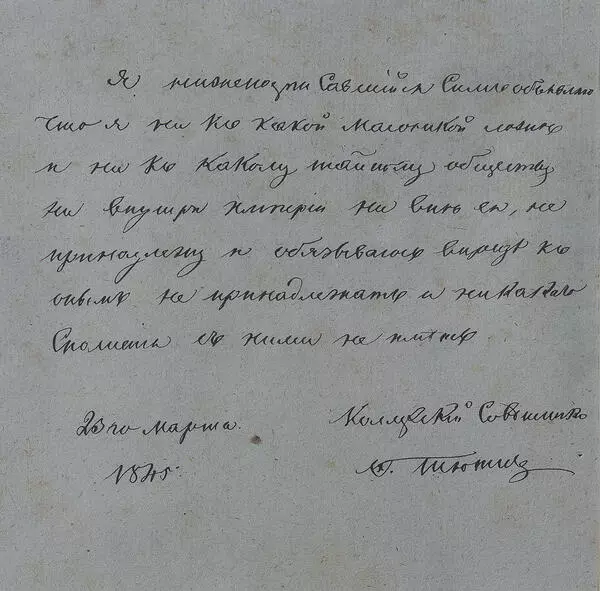Fyodor Tyutchev wrote the poem ‘Silentium! ’ in 1830, but published it for the first time only in 1833 in the ‘Molva’ magazine. Three years later, the poem was published again in the more prestigious literary journal ‘Sovremennik’. Many prominent contemporaries admired the poem. It was highly appreciated, for example, by Leo Tolstoy, who was impressed by the exceptional depth of the poet’s thought.
The story of the title is also of interest. Tyutchev deliberately chose the Latin “Silentium! ” instead of the Russian word meaning “silence”. The poem was conceived in Germany, where the author served at the Russian embassy and attended lectures at the University of Munich. At the university, this meaningful Latin expression was used to call for silence and to draw the attention of the students. The same word was pronounced before proposing toasts at student banquets.
Under these circumstances, Tyutchev thought of the unusual title for his own verses that called for silence. One of the main conflicts of this poem is stated in the line, “A thought once uttered is untrue.” No matter how great the idea was, Tyutchev believed that verbal expression would inevitably simplify and distort it. Despite the transparency of this idea, numerous readers find the poem difficult. The main idea of the text is in the title itself — “Silence”. According to Tyutchev, silence stores the most secret dreams, desires and feelings that people usually keep for themselves.
The poem belongs to the poet’s philosophical lyrics. At the same time, it is distinguished by its clarity and conciseness. The thoughts and feelings of the hero of the poem are the focus of Tyutchev’s attention. The first stanza contains an appeal and vigorous persuasion, “Speak not, lie hidden, and conceal / The way you dream, the things you feel.” The hero of the poem fears that he will never be fully understood. In the second stanza, the imperative mode changes. The poet explains the reasons why the inner thoughts and feelings should be kept to oneself. In the finale, the author sums up his thoughts, “Live in your inner self alone.” Tyutchev emphasizes that a person should be self-sufficient
The story of the title is also of interest. Tyutchev deliberately chose the Latin “Silentium! ” instead of the Russian word meaning “silence”. The poem was conceived in Germany, where the author served at the Russian embassy and attended lectures at the University of Munich. At the university, this meaningful Latin expression was used to call for silence and to draw the attention of the students. The same word was pronounced before proposing toasts at student banquets.
Under these circumstances, Tyutchev thought of the unusual title for his own verses that called for silence. One of the main conflicts of this poem is stated in the line, “A thought once uttered is untrue.” No matter how great the idea was, Tyutchev believed that verbal expression would inevitably simplify and distort it. Despite the transparency of this idea, numerous readers find the poem difficult. The main idea of the text is in the title itself — “Silence”. According to Tyutchev, silence stores the most secret dreams, desires and feelings that people usually keep for themselves.
The poem belongs to the poet’s philosophical lyrics. At the same time, it is distinguished by its clarity and conciseness. The thoughts and feelings of the hero of the poem are the focus of Tyutchev’s attention. The first stanza contains an appeal and vigorous persuasion, “Speak not, lie hidden, and conceal / The way you dream, the things you feel.” The hero of the poem fears that he will never be fully understood. In the second stanza, the imperative mode changes. The poet explains the reasons why the inner thoughts and feelings should be kept to oneself. In the finale, the author sums up his thoughts, “Live in your inner self alone.” Tyutchev emphasizes that a person should be self-sufficient




